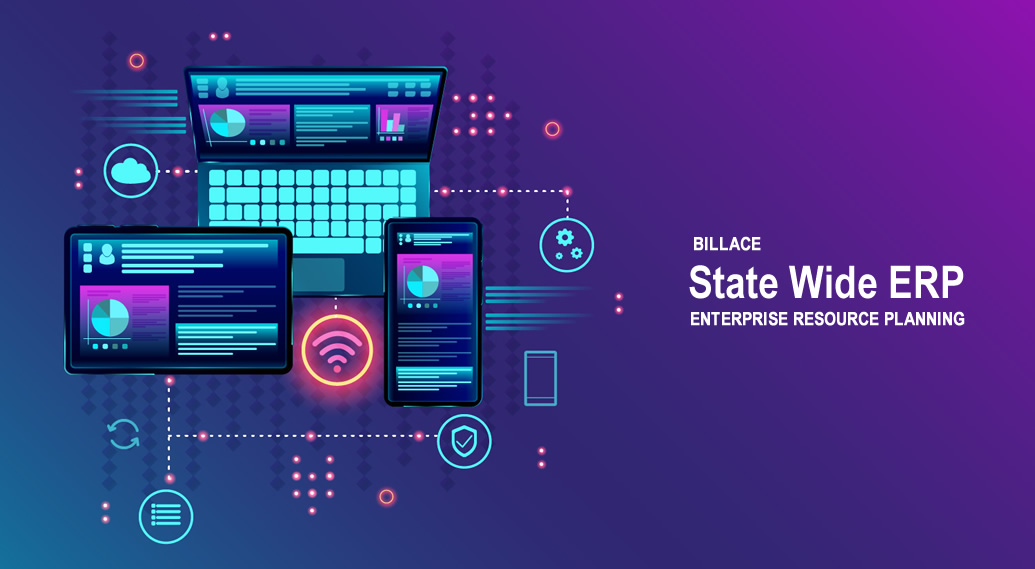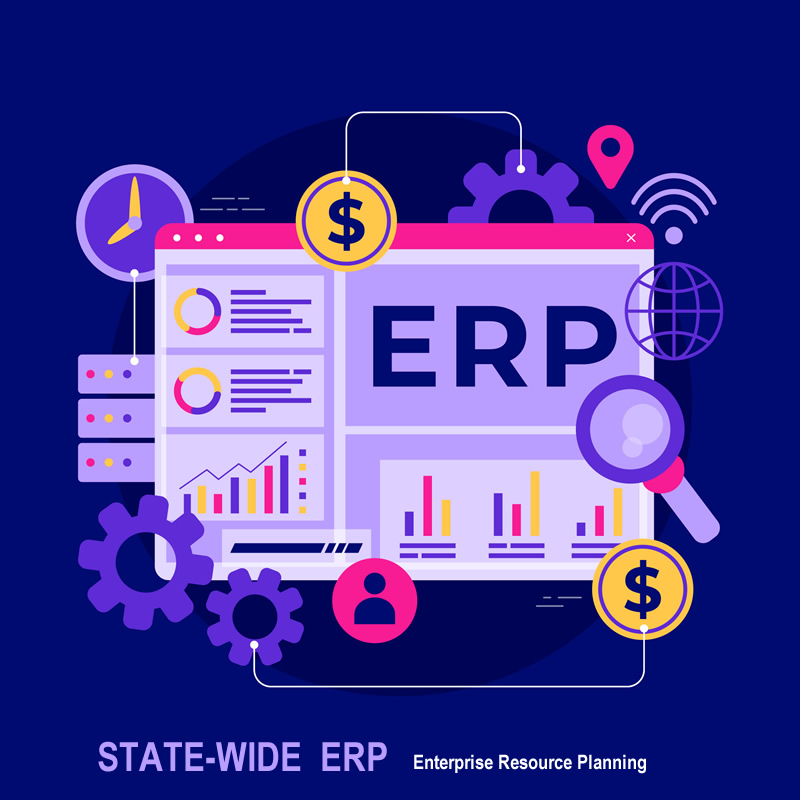
Our State-Wide Enterprise Resource Planning (ERP) platform is a comprehensive digital infrastructure implemented at the state level to integrate and streamline the operations of various government ministries, departments, agencies, and public institutions within a single state. Much like a national ERP system, it replaces fragmented, siloed systems with a unified, centralized framework that handles core administrative and service delivery functions such as finance, human resources, procurement, payroll, budgeting, asset management, and citizen services. However, unlike national ERP platforms that operate across federal institutions, a State-Wide ERP is tailored to the unique administrative structure, needs, and operational complexity of individual states.
Our platform serves as a digital backbone for the entire state government, enabling consistent and standardized processes across departments—from the governor's office and finance ministry to education boards, healthcare departments, public works, and local municipalities. It connects data, automates workflows, and brings greater efficiency, transparency, and coordination to state-level governance.
" The implementation of a State-Wide ERP system signifies a major leap in modernizing public administration. By leveraging cloud computing, real-time analytics, automation, and centralized data repositories, our platform creates an intelligent ecosystem that enhances decision-making, service delivery, and overall administrative agility. "
The benefits of our platform are extensive and transformational. One of the most immediate advantages is increased operational efficiency. State governments manage vast amounts of data and oversee complex processes ranging from employee payroll and budget planning to contractor payments and supply chain logistics. A unified ERP system automates these functions, significantly reducing manual errors, duplication of efforts, and processing delays. For instance, rather than having each department run its own payroll system, a State-Wide ERP processes all payments through a centralized, standardized module–saving time, improving accuracy, and ensuring compliance with state regulations.
A second major benefit is improved financial control and transparency. With an ERP in place, financial transactions are logged in real time, budgets are monitored centrally, and expenditures are tracked against planned allocations. This allows finance departments and oversight bodies to detect anomalies early, prevent misuse of funds, and generate comprehensive reports that support data-driven policymaking. Transparent procurement processes, automated contract management, and auditable records strengthen public trust and enhance accountability.

Our State-Wide ERP platform is a transformative investment in the future of public administration. It redefines how state governments operate internally and engage with their citizens–ushering in a new era of governance that is efficient, accountable, transparent, and citizen-centric. As more states adopt this model, the ripple effects will be seen in improved service delivery, better policy outcomes, and stronger public trust in government institutions.